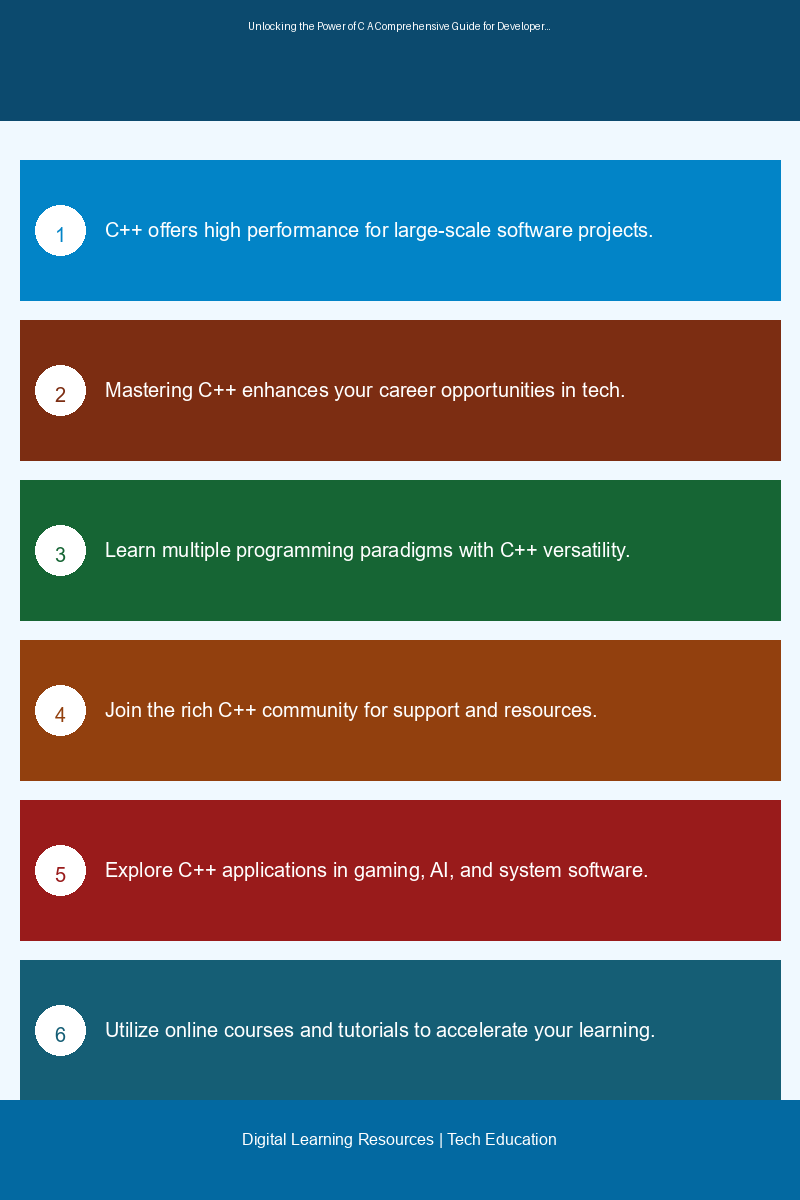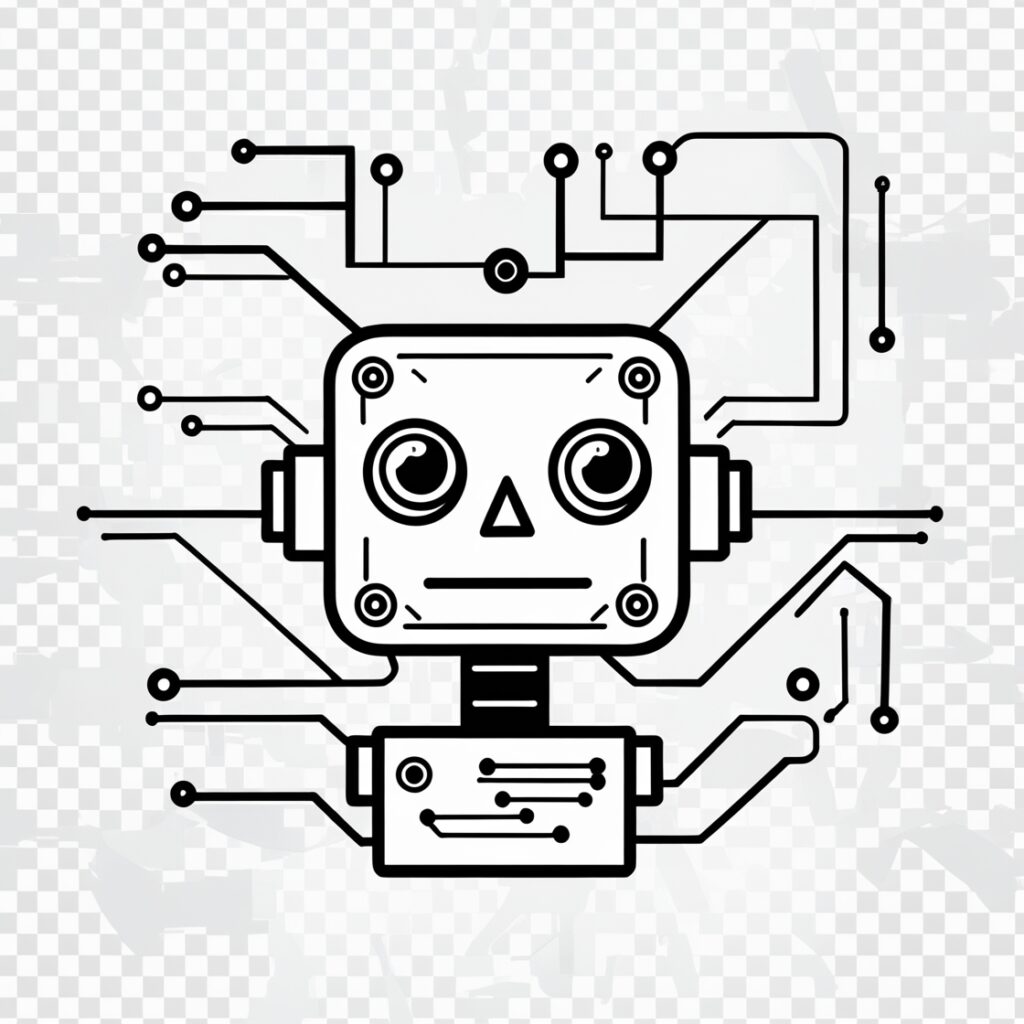Key Takeaways: C++ is a versatile, high-performance programming language ideal for large projects. With its rich community support and extensive applications in the tech industry, learning C++ can significantly enhance your career opportunities. This guide aims to provide actionable advice, practical applications, and a roadmap for mastering C++.
Introduction
C++ has stood the test of time, remaining a fundamental programming language for over 40 years. Its efficiency and speed make it a favored choice for high-performance software development across various sectors. Whether you’re a seasoned developer looking to refine your skills or a newcomer eager to dive into programming, understanding C++ can open the door to numerous career opportunities. This blog post will explore the technical aspects of C++, its practical applications, and the learning path you can take to become proficient in this powerful language.
Technical Background and Context
C++ is a general-purpose programming language that supports multiple programming paradigms, including:
📚 Recommended Digital Learning Resources
Take your skills to the next level with these curated digital products:
AI Enhanced Resume Builder
AI Resume Builder Flask App – Complete Source Code + PDF Tutorial + HTML | Digital Download for Designers
Learn AWS: Your First Cloud Application
Learn AWS: Your First Cloud Application
📊 Key Learning Points Infographic

Visual summary of key concepts and actionable insights
Comprehensive SAT Prep: 470+ Vocabulary Words
Comprehensive SAT Prep: 470+ Vocabulary Words
Master DevOps in Practice – 50 Essential Topics for Engineers (PDF eBook)
Master DevOps in Practice – 50 Essential Topics for Engineers (PDF eBook)
The Ultimate Keyboard Shortcut Guide 49 Software Cheat Sheets in One PDF Bundle
The Ultimate Keyboard Shortcut Guide 49 Software Cheat Sheets in One PDF Bundle
- Functional Programming
- Procedural Programming
- Object-Oriented Programming
This flexibility allows developers to choose the approach that best fits their project needs. C++ is renowned for its efficiency, resulting in faster compile times and execution speeds compared to many other programming languages.
According to the TIOBE Index, C++ ranked 4th in popularity in 2022, underscoring its relevance in today’s tech landscape. Its suitability for large-scale projects makes it the language of choice for developing:
- Compilers
- Cloud storage systems
- Databases
- Game development
- Graphic designs
High-profile applications such as Spotify, YouTube, and Amazon utilize C++, showcasing its capabilities and importance in the industry.
Practical Applications and Use Cases
C++ is employed across various domains due to its performance and versatility. Here are some notable applications:
- Game Development: C++ is widely used in game engines like Unreal Engine, allowing developers to create high-performance games.
- Software Development: Many systems-level applications, including operating systems, are written in C++ due to its low-level capabilities.
- Embedded Systems: C++ is often used in developing firmware for hardware devices, where resource efficiency is crucial.
- Financial Systems: Applications in the finance sector often use C++ for high-frequency trading systems where performance is critical.
Understanding these applications can help you align your learning with industry demands, making you a more attractive candidate for potential employers.
Learning Path Recommendations
To effectively learn C++, consider the following structured path:
- Start with the Basics: Familiarize yourself with fundamental programming concepts such as data types, loops, and conditionals.
- Explore Object-Oriented Programming: Learn the principles of OOP, including classes, inheritance, and polymorphism.
- Advanced Topics: Dive into advanced topics such as templates, the Standard Template Library (STL), and memory management.
- Build Real Projects: Apply your skills by creating projects, such as a simple game or a database management system, to solidify your understanding.
- Contribute to Open Source: Engage with the C++ community by contributing to open-source projects on platforms like GitHub.
Online resources, coding boot camps, and certification materials available on our eCommerce site can help you navigate each stage of this learning path efficiently.
Industry Impact and Career Implications
The demand for C++ programmers remains high due to the extensive existing codebase and ongoing projects utilizing the language. Industries relying heavily on C++ include:
- Gaming: With the rise of indie games and AAA titles, skilled C++ developers are always in demand.
- Finance: Firms require C++ for algorithms and systems to handle large volumes of transactions quickly.
- Cloud Computing: As businesses migrate to cloud solutions, C++ experts are needed to optimize performance.
By mastering C++, you position yourself favorably in the job market, with opportunities in software development, game design, backend development, and C++ analysis.
Implementation Tips and Best Practices
To excel in C++ programming, consider the following best practices:
- Use Smart Pointers: To manage memory effectively and prevent leaks, utilize smart pointers like std::unique_ptr and std::shared_ptr.
- Follow Coding Standards: Adhere to consistent coding styles and standards to enhance readability and maintainability.
- Practice Regularly: Regular coding practice will improve your problem-solving skills and reinforce your understanding of concepts.
- Engage with the Community: Participate in forums, attend meetups, and join online communities to share knowledge and seek help.
Implementing these practices will not only improve your coding skills but also prepare you for collaborative work environments.
Future Trends and Skill Requirements
The tech landscape is continually evolving, and C++ is no exception. Future trends indicate an increasing focus on:
- Performance Optimization: As systems become more complex, the need for efficient C++ code will grow.
- Cross-Platform Development: Skills in creating applications that run on various platforms will be essential.
- Integration with Emerging Technologies: Knowledge of how C++ interfaces with machine learning and IoT will be advantageous.
Staying ahead of these trends will enhance your employability and keep your skill set relevant in a competitive job market.
Conclusion with Actionable Next Steps
C++ remains a powerful tool in the programmer’s arsenal, with its applications spanning various industries and domains. By understanding the technical background, practical applications, and following a structured learning path, you can master this language and unlock numerous career opportunities.
Next Steps:
- Explore our extensive range of programming guides and certification materials tailored for C++ learners.
- Engage with online communities to seek mentorship and feedback on your projects.
- Commit to a project that challenges your current skills and pushes you to learn more.
Embark on your C++ learning journey today and position yourself for a successful future in tech!
Disclaimer: The information in this article has been gathered from various reputed sources in the public domain. While we strive for accuracy, readers are advised to verify information independently and consult with professionals for specific technical implementations.
Ready to advance your tech career? Explore our digital learning resources including programming guides, certification prep materials, and productivity tools designed by industry experts.



